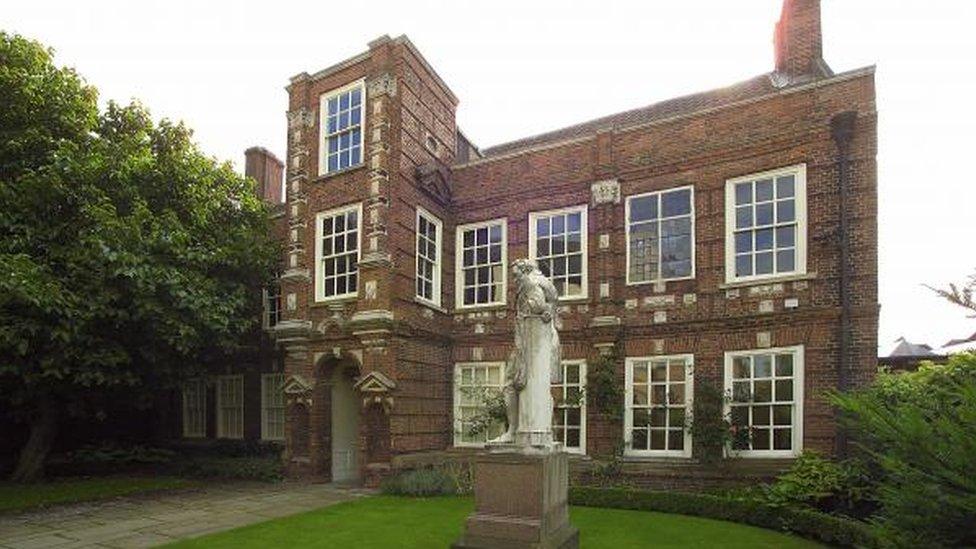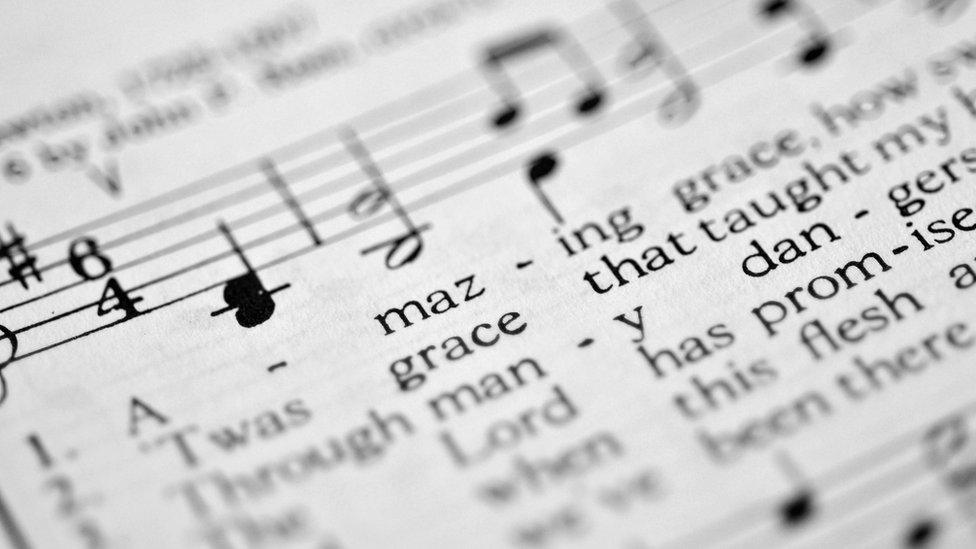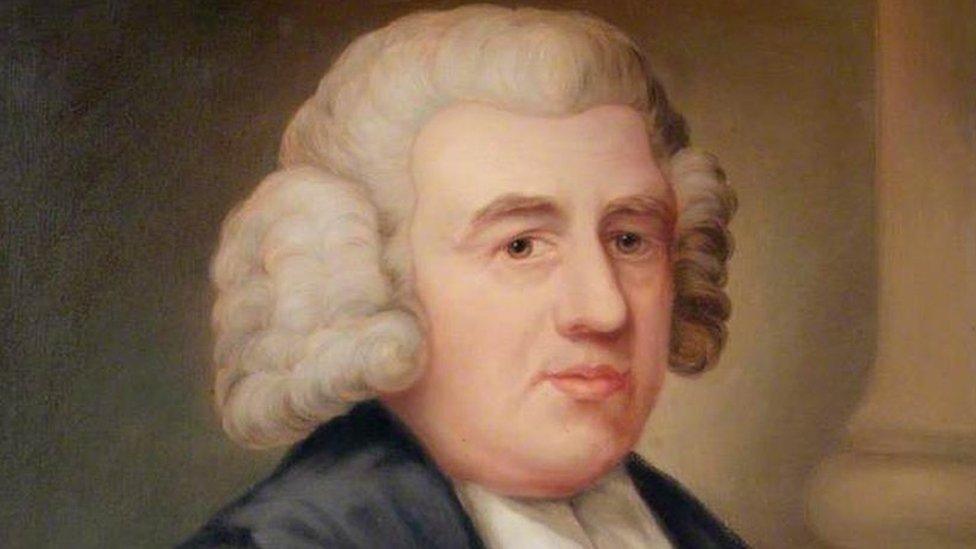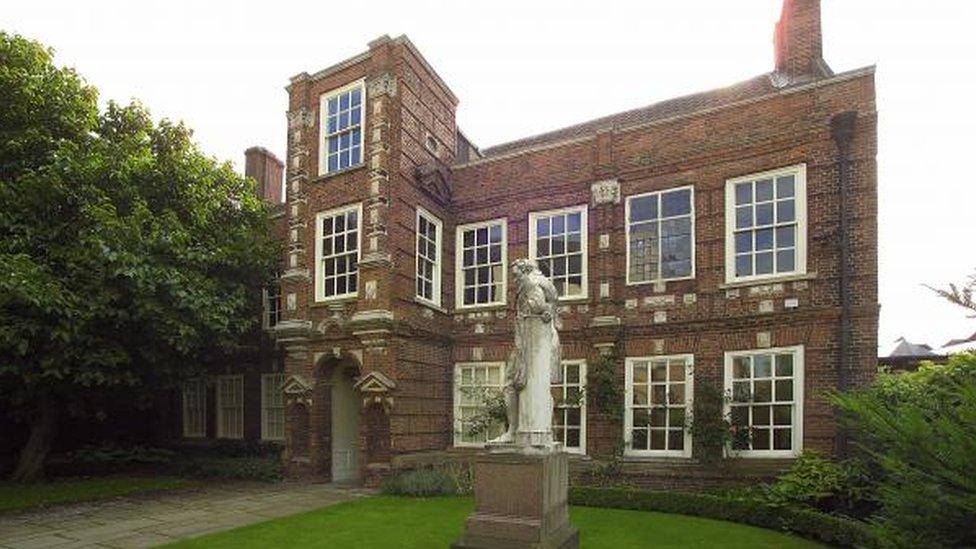Hull museum explores Amazing Grace hymn's anti-slavery links
- Published

The museum was the birthplace of leading anti-slavery campaigner William Wilberforce
The story of the hymn Amazing Grace and its links with the anti-slavery movement are being explored at a museum in Hull.
The touring exhibition at the Wilberforce House Museum opens on the International Day for the Remembrance of the Slave Trade.
It also marks the 250th anniversary of the hymn's composition.
The Rev John Newton wrote it in 1773, he had been a slave ship captain before converting to the abolitionist cause.
He had sailed and worked on five voyages trafficking people from Africa to the Caribbean before joining the anti-slavery movement.
Newton used his personal experiences on the Committee for the Abolition of the Slave Trade and became a keen abolitionist and associate of Hull's William Wilberforce.
As curate-in-charge at St Peter & St Paul's church in Olney, Buckinghamshire, he wrote Amazing Grace in the weeks leading up to his New Year's Day service on 1 January 1773.
Hull City Council said the hymn had gone on to inspire countless people and had become known in America as the nation's "spiritual anthem".

The hymn has remained popular for 250 years
Rob Pritchard, portfolio holder for culture and leisure at Hull City Council, said: "Amazing Grace is one of most recognised hymns.
"The exhibition will cover the history of John Newton, his conversion to the anti-slavery cause and the writing, development and history of the famous hymn Amazing Grace, still sung today by a wide variety of musicians and choirs."
Funded by Hull Maritime, this exhibition also includes a specially commissioned film, showcasing a diverse range of Hull choirs, singers and musicians performing the hymn.
This film will also be used online to mark the International Day for the Remembrance of the Slave Trade and its Abolition.
The exhibition has been curated by the Cowper and Newton Museum, in Olney, Buckinghamshire, and will be on display until November.

Follow BBC East Yorkshire and Lincolnshire on Facebook, external, Twitter, external, and Instagram, external. Send your story ideas to yorkslincs.news@bbc.co.uk, external.
- Published1 January 2023

- Published20 May 2023
